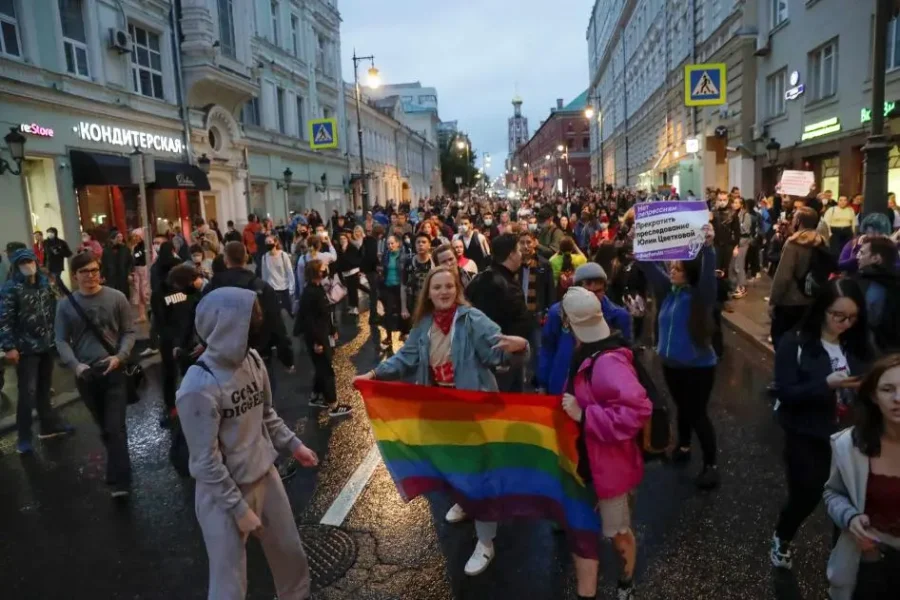Russia’s Supreme Court ruled on Thursday that LGBT activists should be designated as “extrem-ists”, in a move that representatives of gay and transgender people fear will lead to arrests and prosecutions.
The presiding judge announced that he had endorsed a request from the justice ministry to ban what it called “the international LGBT social movement”.
The move is part of a pattern of increasing re-strictions in Russia on expressions of sexual orientation and gender identity, including laws outlawing the promotion of “non-traditional” sexual relations and banning legal or medical changes of gender.
UN human rights chief Volker Turk urged Russian authorities to “repeal, immediately, laws that place improper restrictions on the work of human rights defenders or that discriminate against LGBT people”.
President Vladimir Putin, expected shortly to announce that he will seek a new six-year term in March, has long sought to promote an image of Russia as a guardian of traditional moral values in contrast with a decadent West.
In a speech last year, he said the West was welcome to adopt “rather strange, in my view, new-fangled trends like dozens of genders, and gay parades” but had no right to impose them on other countries.
Read Colors promoting UN goals or LGBTQ rights? Turkey’s Erdogan complains Putin’s spokesman Dmitry Peskov told reporters before the court decision was announced that the Kremlin was “not following” the case and had no comment on it.
The court took around five hours from the start of proceedings to issue its ruling. The hearing was closed to media, but reporters were allowed in to hear the verdict.
LGBT activists had seen the decision as inevitable after the Nov. 17 request by the justice ministry, which said – without giving examples – that “various signs and manifestations of extremist orientation, including the incitement of social and religious discord” had been identified in the activities of the LGBT movement in Russia.
Outside the court, LGBT activist Ada Blakewell said the ruling belied official statements that Russia does not discriminate against LGBT people and affords them equal rights.
She said she had been subjected for a year, against her will, to “conversion therapy” to persuade her that she was not a transgender woman.
“In practice, after the adoption of this lawsuit, I won’t be able to talk about conversion therapy,” she said.
People interviewed by Reuters on the streets of Moscow had divided views. Read more Africa, LGBT rights and global agencies
“I’d like this world to be a free place where people can love whoever they want, although my attitude to all this is neutral because I’m not in their shoes,” said a young woman named Lera. “But if I were forbidden to love, that would be very painful.”
Daniil, a man in his 20s, said same-sex relationships were “not normal”.
“I believe the majority of people at least that I know, my friends and acquaintances, share a negative attitude towards homosexuality. That’s why it’s the right decision for our country,” he said.
More than 100 groups are already banned in Russia as “extremist”. Previous listings, for example of the Jehovah’s Witnesses religious movement and organisations linked to opposition politician Alexei Navalny, have served as a prelude to arrests.
Ravina Shamdasani, spokesperson for the U.N. Human Rights Office, said the LBGT community’s situation in Russia was “just going from bad to worse”, and the lack of clarity around the court’s definition of “LGBT movement” left the law open to abuse.
“What this means for the LGBT community is its further repression of their fundamental rights,” she said.









